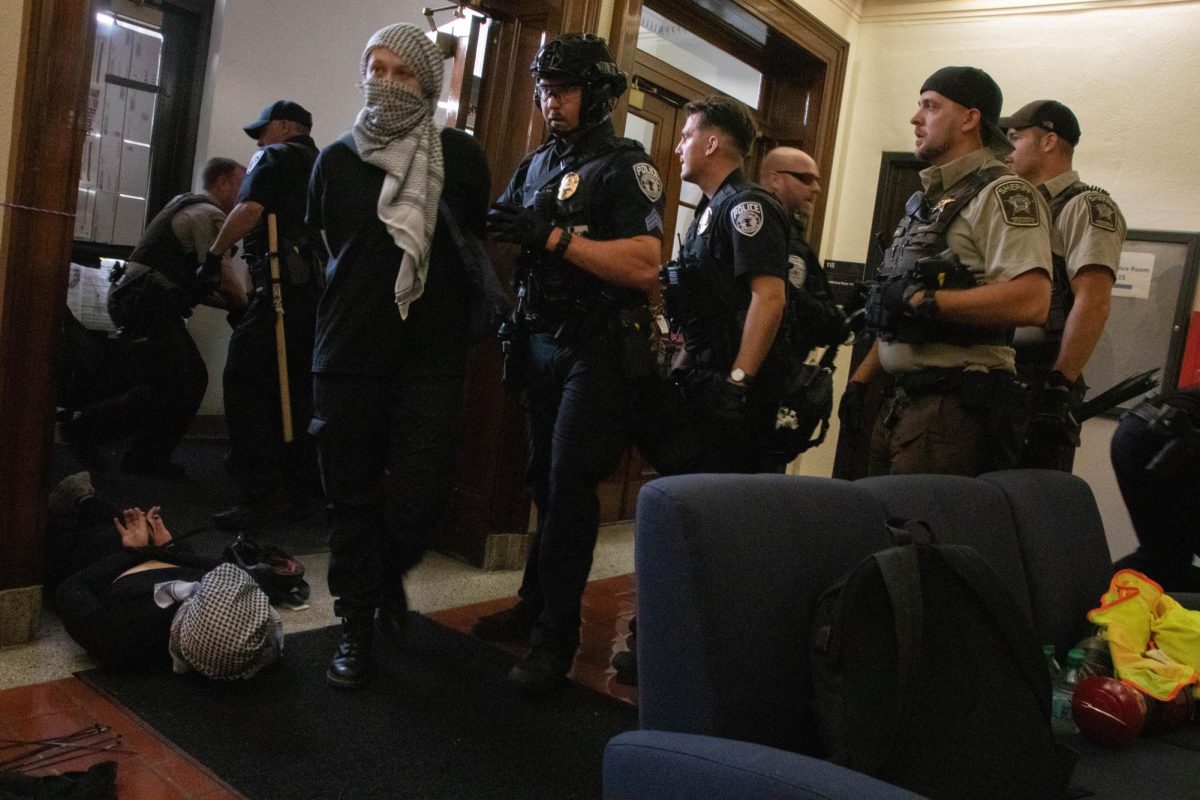An effort to potentially ban TikTok in the U.S. passed the House of Representatives March 13 and is headed to the Senate despite mixed reactions from creators and users of the app.
While there were previous efforts to ban the app, this bill has moved further than any previous attempt.
Past efforts
The initial effort to ban TikTok in 2020 was an executive order from former President Donald Trump over national security concerns.
This order fell through and instead led to Project Texas in June 2022. Project Texas was a $1.5 billion plan where TikTok’s U.S. user data would run through the Texas-based software company Oracle to ensure the safety of user data.
The Biden administration banned TikTok from federal devices in February 2023.
Montana was the first U.S. state to pass a total ban on the app in May 2023, but a federal judge blocked the ban in November before it took effect.
This current bill would force TikTok owner ByteDance to divest its ownership of the app within 165 days. Failure to do so would result in a ban.
President Biden has said he would sign the bill if passed.
TikTok’s difference
Rep. Ilhan Omar (DFL) said in a statement to The Minnesota Daily she voted no on the recent TikTok bill and is aware, as the representative for one of the youngest districts in Congress, many constituents rely on TikTok for creative expression, news, business and engagement on issues.
Liza Meredith, a psychology professor and researcher at the University of Minnesota, said she feels like there is less content on TikTok that leads to social comparison than on other social media apps, such as Instagram.
“I think about the TikToks I received from friends and I remember some of them are like pickleball content and others are current events,” Meredith said. “It doesn’t feel as much about showing your life and how great it is.”
Meredith added it allows some of her clients to feel more connected to people who have similar struggles.
“I have some other clients who wish they could spend less time on TikTok,” Meredith said. “It feels like too much of a distraction, but also feeling like they couldn’t stop it all together.”
Effects of the loss
Kevin Silberman, a teacher at Burnsville High School, said he began making TikTok videos with his son in 2020 during the COVID-19 lockdown to try to get a video with 10,000 views and then quit. After posting a few videos, Silberman said one video received 1.5 million views, and he was hooked.
Silberman often makes videos with his students and athletes that he coaches. He has 1.3 million followers on TikTok and 74,000 on Instagram.
Meredith said because TikTok is commonplace, especially with students, people will likely experience feelings of loss related to not having it.
“I think for a lot of people it’s a staple of their life now,” Meredith said. “If you’re used to something and it’s become a hobby or routine, there’s probably going to be a sense of loss about not having that anymore.”
Silberman said he was upset about the ban at first, but his mind changed as he learned more about the data privacy concerns.
“For me, the best outcome would be if it was a forced sale and that to some degree stayed TikTok and I could keep going,” Silberman said. “It’s been long enough that I now get people coming up to me and saying ‘Oh, you’re that guy from Instagram.’”
Silberman said he posts both on TikTok and Instagram Reels, so nothing would change for him.
“The reason I do this is because I really like it and I have fun with my students and my family doing it,” Silberman said. “I make some money doing it, which is great, but my real job is teaching.”
Fourth-year University student Emma Solis said in a statement to The Daily a ban would create both a loss of income and opportunities for her to study different sources of media and marketing.
“It’s not only an app for entertainment but also connects users with other users throughout different communities,” Solis said in the statement.
Meredith and Silberman said they expect people will find alternative apps to TikTok if it’s gone.
“Even if it’s gone, I doubt the tendency to check our phones and trying to stay up with what’s going on or connect with other people is going to disappear,” Meredith added.
Omar said in her statement to The Daily while she agrees there are privacy and data worries surrounding TikTok, those same concerns exist with other social media companies.
“The bill is rushed and bad policy,” Omar said in the statement. “It doesn’t solve those broader problems – instead, it singles out TikTok while turning a blind eye to rampant issues on Facebook, Twitter, Instagram, and other social media channels exploiting user data.”
Instead of banning TikTok, comprehensive regulations overseeing data practices across all social media companies should be created, Omar said.
“I hope we can create actual standards and regulations around privacy violations across social media companies—not just target platforms we don’t like,” Omar said.





















Bob Mecum
Mar 29, 2024 at 8:27 pm
Yeah, banning TikTok is about denying access to Americans to share the truth when it runs contrary to the current administration’s narratives. It’s the oldest method by political parties to control the narrative. Don’t be fooled. Don’t be sheep.